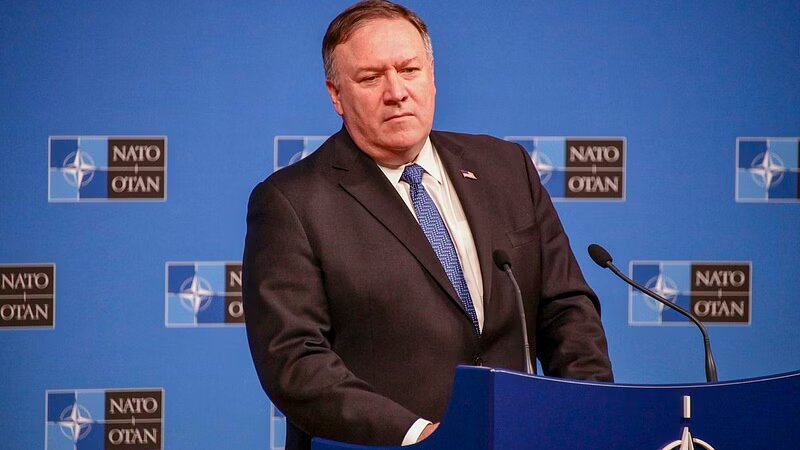In a book that came out on Tuesday, former US Secretary of State Mike Pompeo said that India and Pakistan almost went to nuclear war in 2019, but the US stepped in and stopped it.
“I don’t think the world knows how close India and Pakistan were to starting a nuclear war in February 2019,” the likely 2020 presidential candidate wrote in “Never Give an Inch,” his memoir of his time as Donald Trump’s top diplomat and CIA director before that.
In February 2019, India did something that had never been done before: it launched airstrikes inside Pakistan after blaming a militant group there for a suicide bombing in Kashmir that killed 41 Indian paramilitary soldiers. The pilot of an Indian warplane was taken prisoner after Pakistan shot it down.
Pompeo was in Hanoi for a meeting between Trump and North Korean leader Kim Jong Un. He said that a senior Indian official woke him up with an important call.
“He thought that the Pakistanis had started getting their nuclear weapons ready for an attack. He told me that India was considering its own escalation “Pompeo typed.
Pompeo said, “I told him not to do anything and to give us a minute to figure things out.”
Pompeo said that US diplomats had persuaded both India and Pakistan that neither country was getting ready to use nuclear weapons.
“No other country could have done what we did that night to stop something bad from happening,” Pompeo wrote.
Pompeo wrote that Pakistan “probably helped” with the attack in Kashmir. He said he talked to “the real leader of Pakistan,” who at the time was army chief General Qamar Javed Bajwa, to show how weak civilian governments are.
At the time, Pompeo spoke out in favour of India’s right to act. In his book, Pompeo said nice things about India. Unlike officials in New Delhi, he didn’t hide the fact that he wanted to work with the South Asian democracy “to stop Chinese aggression.”
In 1998, India and Pakistan both tested nuclear bombs. This was a turning point. Bill Clinton, who was president at the time, would often say that Kashmir, which is split between two countries, is “the most dangerous place in the world.” “I’m still trying to kill you,” he said. In his book, Pompeo talks at length about his diplomatic work with Kim Jong Un, which included setting up three meetings between the young dictator and Trump.
He told about a scary first conversation he had when he flew into Pyongyang in March 2018 on a secret trip as the head of the CIA.
“”I didn’t expect you to come. I know you have been trying to kill me,'” Pompeo says what Kim told him.
“I decided to make my own joke: ‘Mr. Chairman, I’m still trying to kill you.'”
But Pompeo said that Kim and he were getting closer to an agreement as the Trump administration offered ways to lower tensions.
Pompeo wrote that he told Kim that he would take him to a doctor if he kept smoking “the best Cubanos in the world and hang out on Miami’s best beach. He said to me, “I already get along well with the Castros.” He did, of course.”
As for what they talked about, Pompeo said Kim was honest about his worries about China, which is usually seen as North Korea’s main ally.
When told that China thinks North Korea wants US troops out of South Korea, Kim laughed and pounded on the table with joy, saying that the Chinese were lying.
Kim “said that he needed the Americans in South Korea to protect him from the CCP, and that the CCP needs the Americans out so that they can treat the peninsula like Tibet and Xinjiang,” Pompeo wrote, referring to the Chinese Communist Party.
Pompeo was known for being tough on China, and he caused a stir when he said that Beijing was spreading the “Wuhan virus.”
He said that Trump told him that Chinese President Xi Jinping “hates” him and told Pompeo to “shut the hell up for a while” because the US needed medical equipment from China.
Pompeo hasn’t said that he won’t run against Trump for the Republican nomination for president in 2024, even though early polls show that Pompeo doesn’t have much support.
